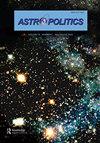印度尼西亚的空间活动:漫长而曲折的道路
Q3 Social Sciences
引用次数: 2
摘要
从1963年初到2022年,印度尼西亚的空间活动在空间技术、法律和政策方面取得了许多突破,但也面临着多重挑战,其中大部分是由内部政治问题引起的。印尼的空间运作可以分为三个时代:(1)旧秩序,(2)新秩序,(3)改革时代。在改革时代之前,印度尼西亚空间发展的最稳定的环境已经存在,因为国家政策加强了国家空间基础设施。然而,在1998年的政治动荡之后,印尼的太空计划自改革政府开始以来一直停滞不前,这表明太空计划不是一个优先事项。尽管如此,在2000年代,印度尼西亚迈出了重要的一步,加入了五项国际空间条约中的四项,极大地改变了印度尼西亚空间计划的进程。印度尼西亚一直渴望实现空间技术独立,为此,2013年颁布了2013年第21号法律,为《2016-2040年印度尼西亚空间活动总体规划》铺平了道路,以促进国家空间发展。尽管印尼有明确的太空项目发展长期计划,但政府在政治和财政上的不一致仍然是一个重大障碍。本文探讨了印度尼西亚的国家空间发展政策以及到2040年实现该国空间发展目标的前景。本文章由计算机程序翻译,如有差异,请以英文原文为准。
Indonesian Space Activities: The Long and Winding Road
ABSTRACT From early 1963 to 2022, Indonesian space activities saw numerous breakthroughs in space technologies, law, and policies, but also multiple challenges, the majority of which were caused by internal political issues. Indonesian space operations can be classified into three epochs: (1) the old order, (2) the new order, and (3) the reformation era. Prior to the reformation era, the most stable environment for Indonesian space development since state policy has strengthened national space infrastructure existed. However, following the political turbulence in 1998, Indonesia's space program has been stalled since the start of reformation administrations, indicating that space initiatives are not a priority. Nonetheless, in the 2000s, Indonesia took a significant step by acceding to four of five international space treaties, significantly altering the course of the Indonesian space program. Indonesia has aspired for space technology independence, and to that end, in 2013, it enacted Law No. 21 of 2013, which paved the way for the Indonesian Space Activities Master Plan 2016–2040 for national space development. Although Indonesia has a defined long-term plan for space program development, the government's political and financial inconsistencies remain a significant impediment. This paper explores Indonesia's national space development policy and the prospects for achieving the country's space development goals by 2040.
求助全文
通过发布文献求助,成功后即可免费获取论文全文。
去求助
来源期刊

Astropolitics
Social Sciences-Political Science and International Relations
CiteScore
1.20
自引率
0.00%
发文量
2
期刊介绍:
Astropolitics: The International Journal of Space Politics and Policy is a peer-reviewed academic journal. The journal is dedicated to policy relevant and interdisciplinary analysis of civil, commercial, military, and intelligence space activities. Committed to the highest editorial standards, Astropolitics is the international journal of choice for the academic, policy-maker and professional in the space community.
 求助内容:
求助内容: 应助结果提醒方式:
应助结果提醒方式:


